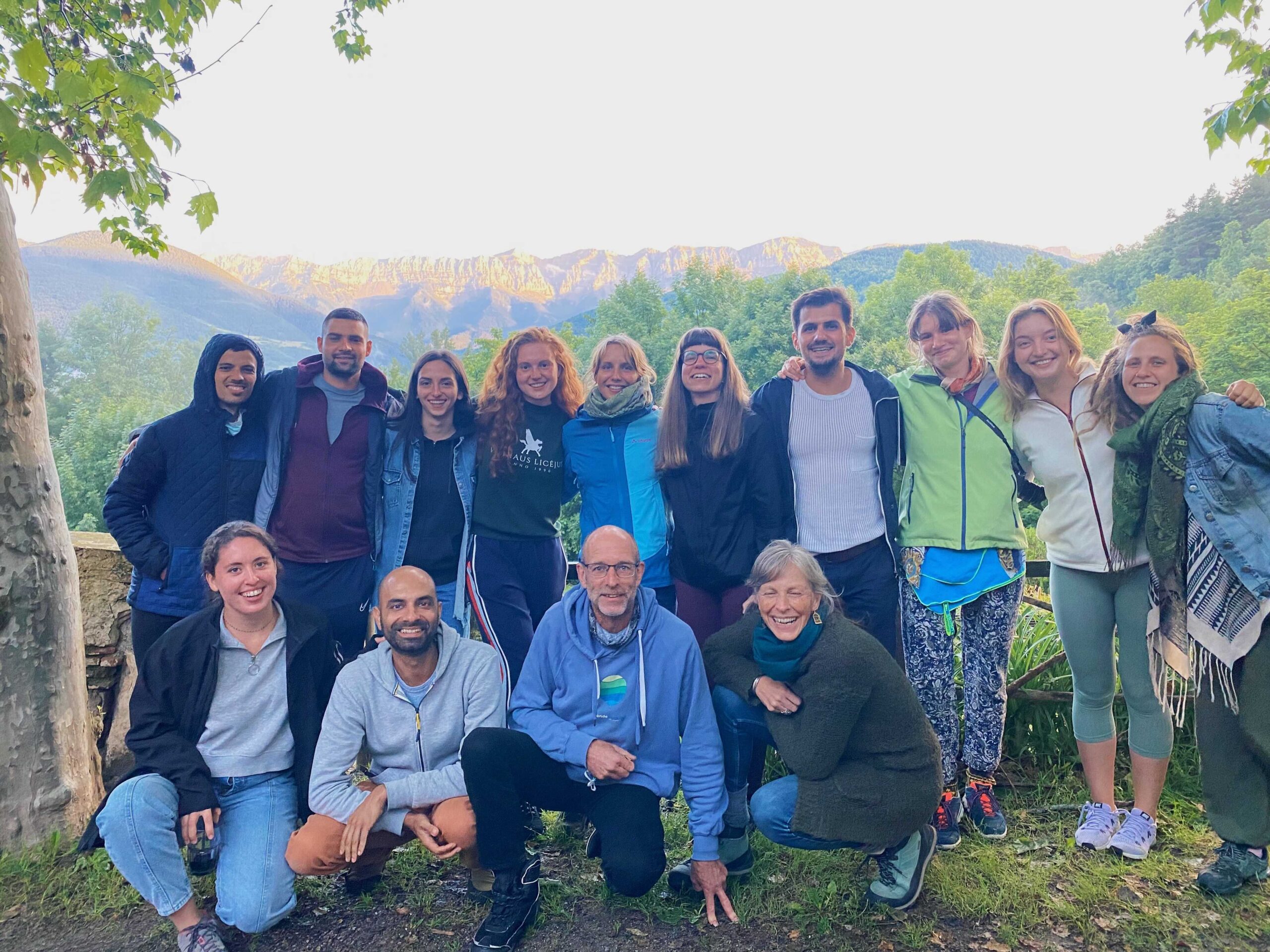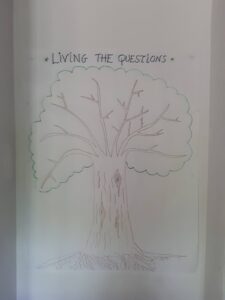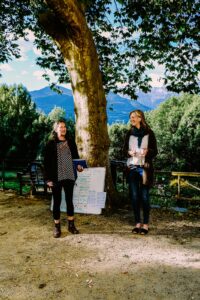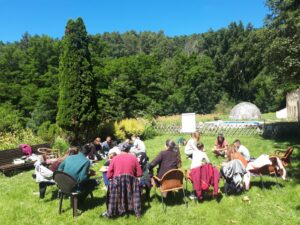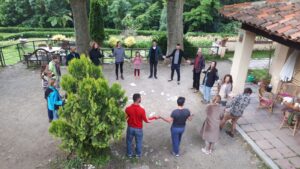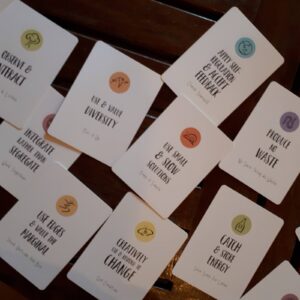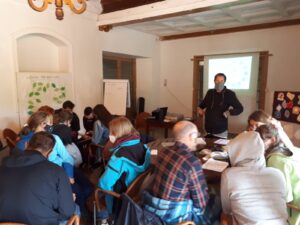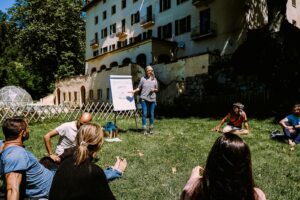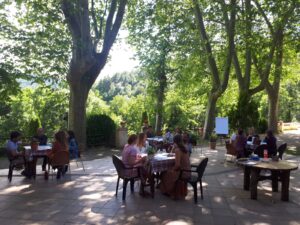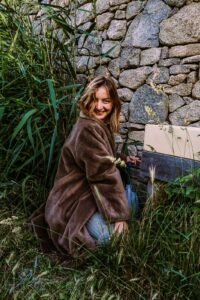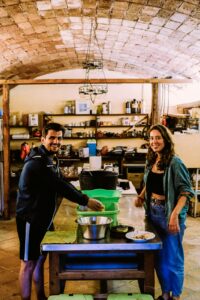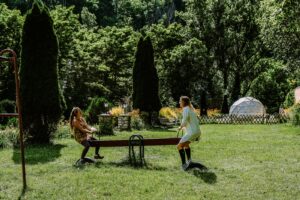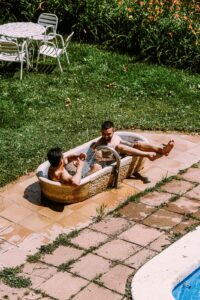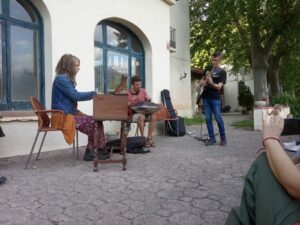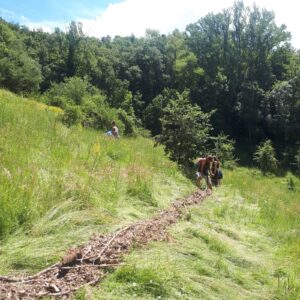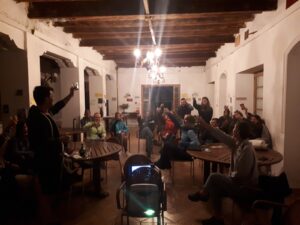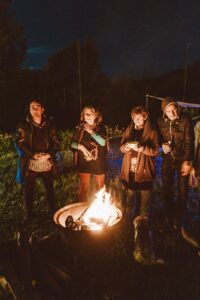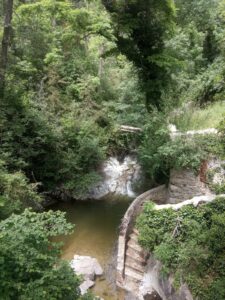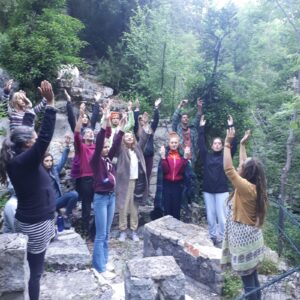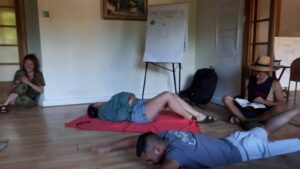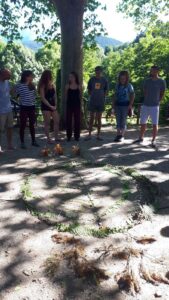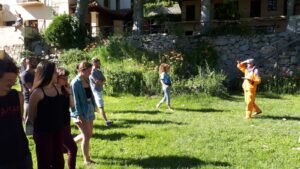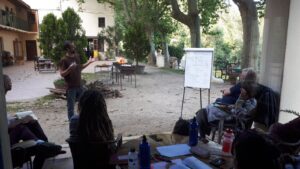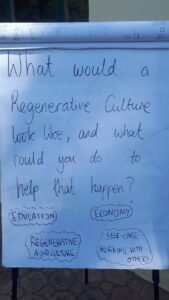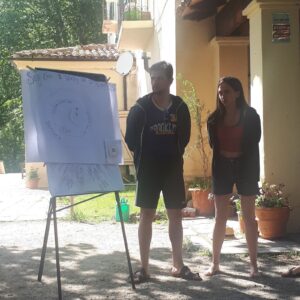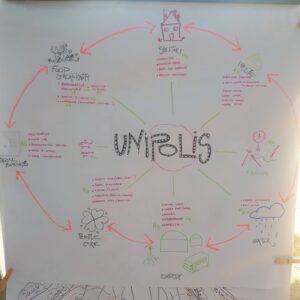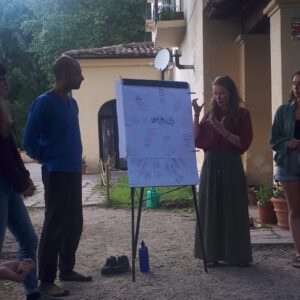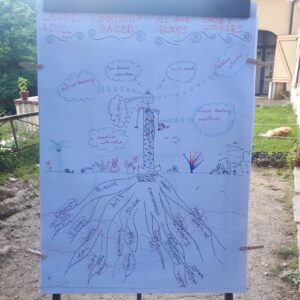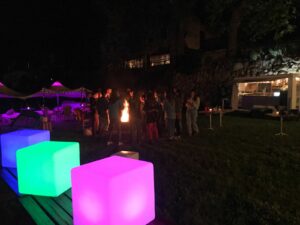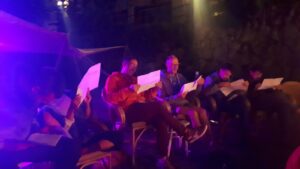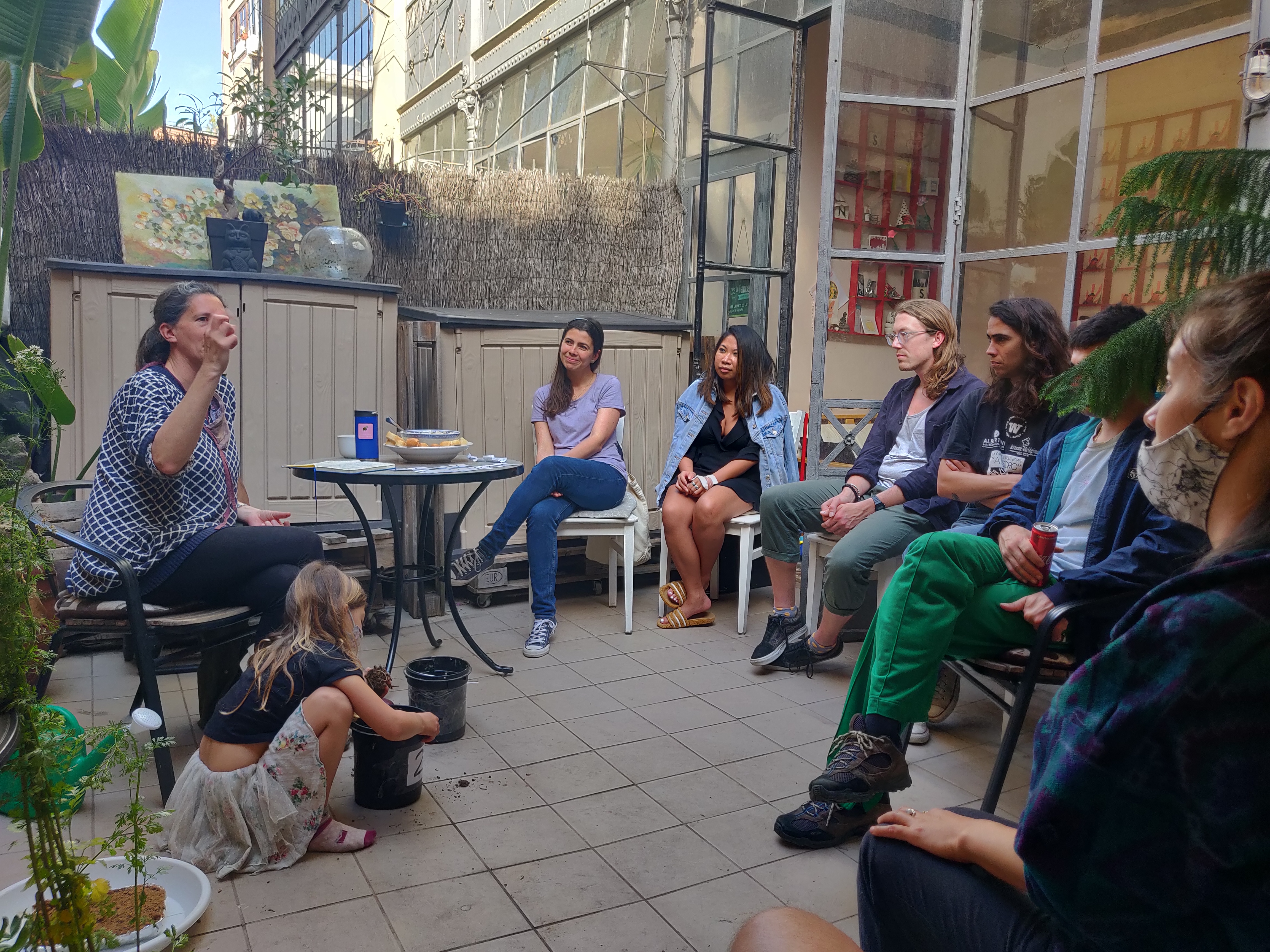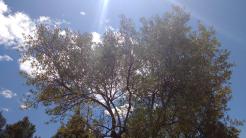
Planting day in April
Fran, our new volunteer, shares his experience planting with our collaborator Nick Park from Cova Fullola
Today, Monday April 11, was my second day at Boodaville Caseres.
Nick, a Scot who lives in Tortosa, is a true field expert, he has many chickens, he brought chicken poop in a sack and there was straw on top, which we have used to make layered compost. On the farm there was already a compost made, and we have made another one right next to it, using material from the old one. We have placed it next to a tree so that it has shade and does not suffer so much from the high temperatures in summer. We have added supplements to give it even more life, so that worms can grow and they are in charge of moving everything inside. We have made it like a lasagna with different layers. First a thin layer of the compost soil that was already in place, then we sprinkled a kind of biochar on top which came in two types: The first one, which was of better quality, was used for the plants, and the other bag, which was of lesser quality, was used as a layer (well crushed) for the new compost that we were making. So, as I was saying, we put a layer of organic compost from Boodaville on the ground, then a little biochar, then the straw that Nick brought along with the chicken poop went on top, and another straw layer on top as well. There is a lot of straw next to the compost, which we used for this.
Then the process is repeated until a fairly high mountain is made. It has to be turned once a month and watered over it at the end of stirring.
Before this task, we planted artichokes around the fruit trees, to provide them with nitrogen and nutrients, we have planted trees of a kind of grape (Berberis vulgaris), which need semi-shade, strawberry trees (Arbutus Unedo) have been planted near one that had already been planted; tha’s a clue to know if it is a good place for it, – a more acidic zone. Another type (Spartium junceum) has also been planted to break the wind, provide shade, support. We have removed branches from two fig trees with their roots, not very thick branches, we have put them in water and tomorrow we are going to put them in pots with soil, so that they will be like this until autumn, and then be replanted in the ground.
Small branches (thickness less than a finger) have been extracted, conserving the root to leave them in water in a bucket of two fig trees that are in the area but do not have much life. The next day we have planted those branches in small pots with a mixture of compost and soil.
Nick always observes the soil, he explained to us the acidity or alkalinity of the soil, right now I am very lost and I feel that I need to study a lot, ask a lot. We were at the end of the afternoon on the “Thyme Terrace” at the top; where they have built a swale to accumulate water and that drains down the dirt road. Since the land is on a slope, divided into terraces, it can be said that it is the first, above it there is a container to collect water.
An incredible day with very good, competent people, wanting to get together, learn, grow, live. magnificent cooks.
List of species planted and jobs done :
Cover crop (??)
Support plants
3 Berberis vulgaris – nr the gooseberries
3 Spartium junceum – Food forest wind break, now marked with long canes.
2 Cercis siliquastrum – 1 in OJ garden, 1 in strawberry area
5 Acacia redolens – planted on Thyme Terrace
hortalices – Artichoke and (??)
Jobs done :
- Touch the ground and attend to the food forest together, the plants that are there, compare with the map.
- Plant support species, strawberry trees, vegetables in the edible forest.
- Take cuttings of fig trees to propagate in the nursery, have a clear plan on how to care for them.
- Plant support species on the Thyme Terrace (Acacia)
- Fix water catchment for green tank.
- Give life to the compost pile in the food forest and have a plan to take care of it, and where and how to use it.
- Learn how to mulch and seed cover crop T6
- Look at N fixing nodules on the Alfalfa















